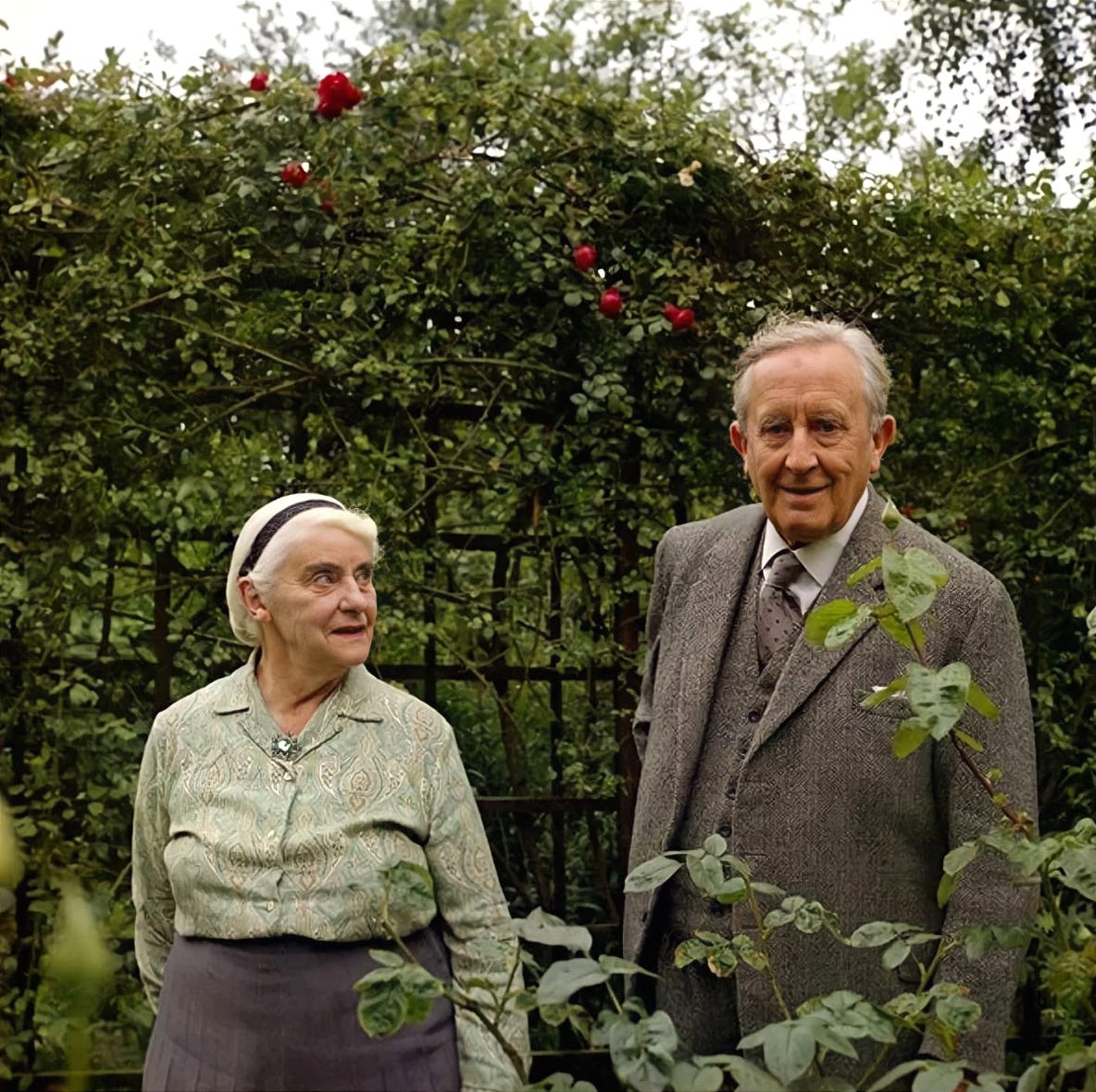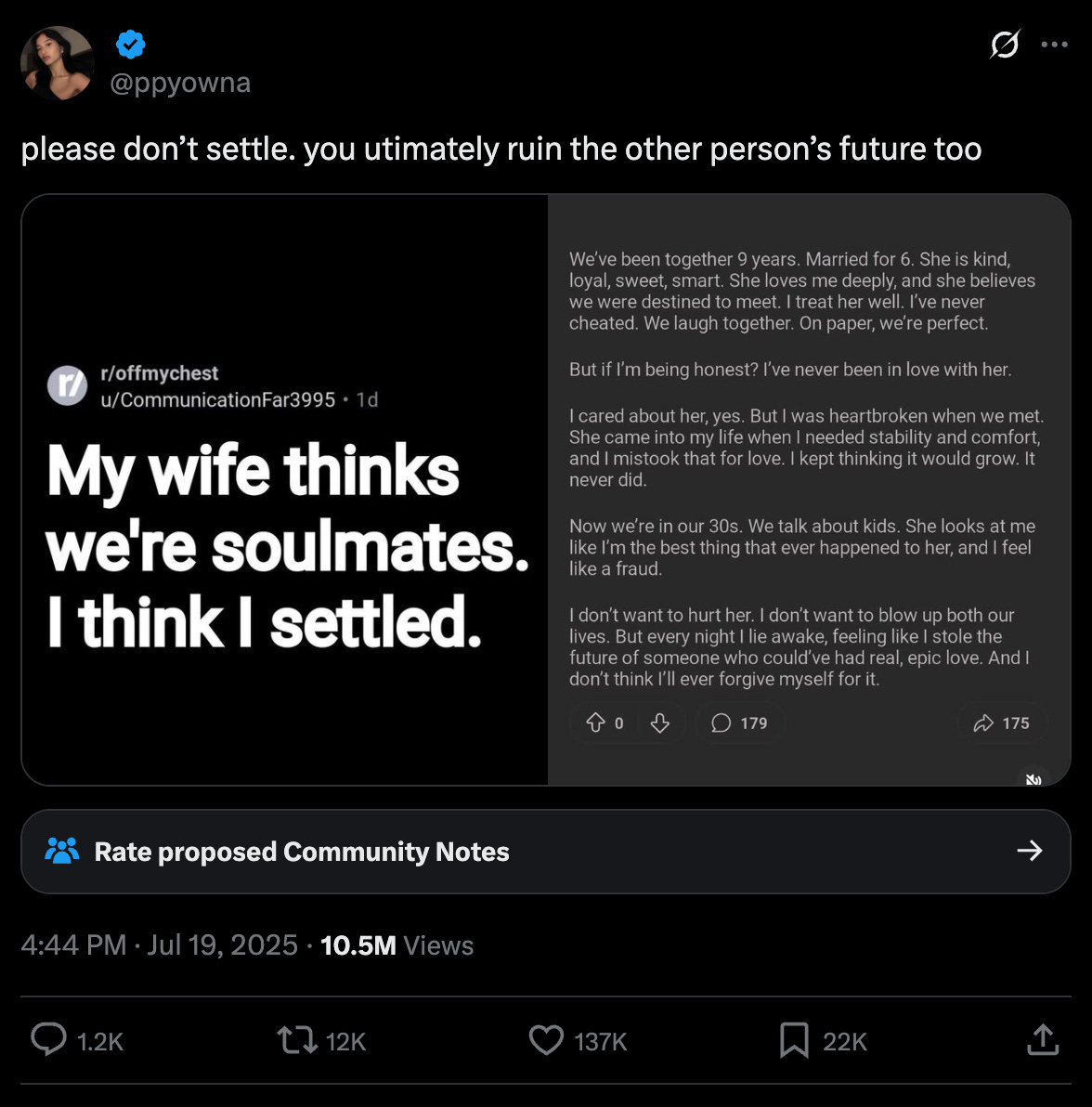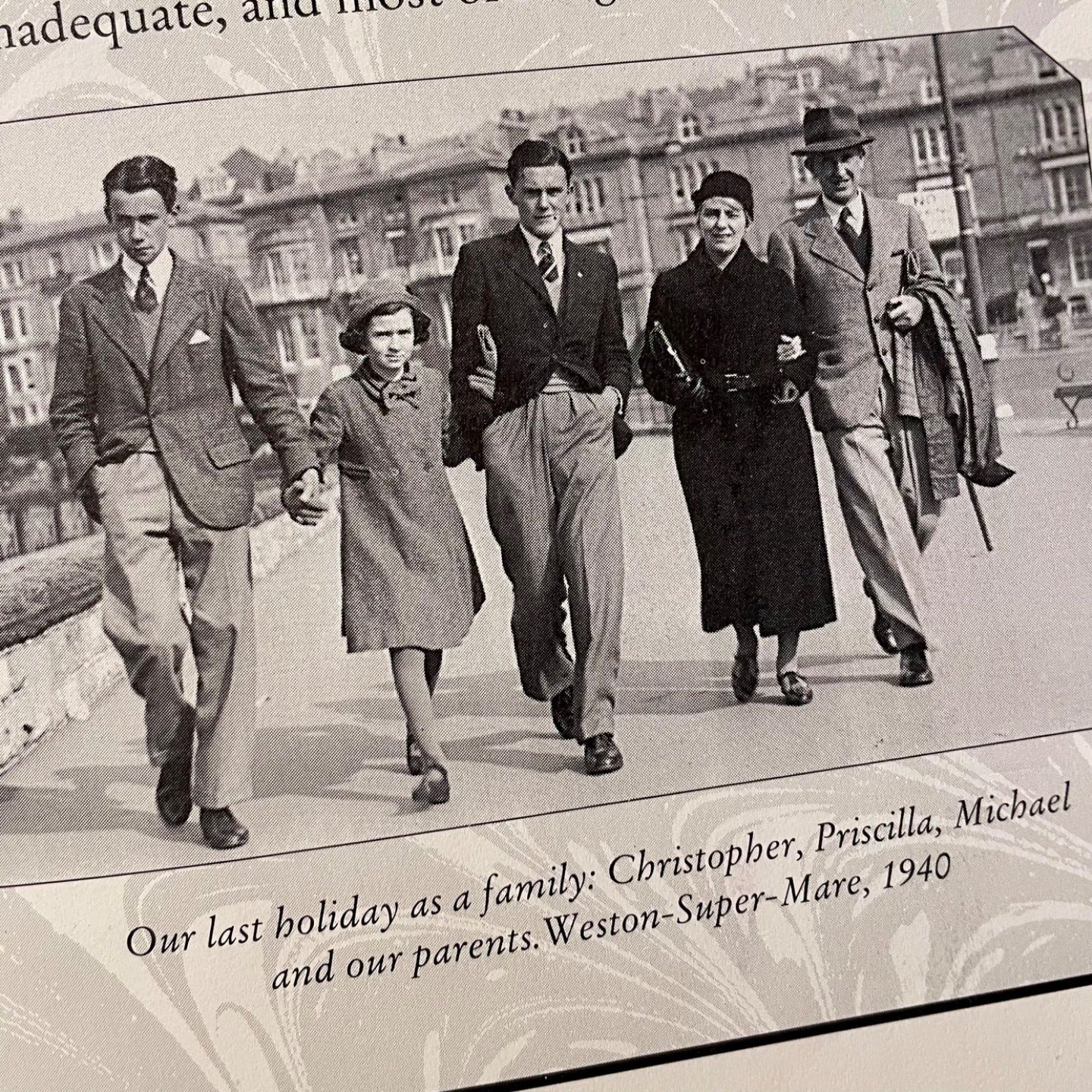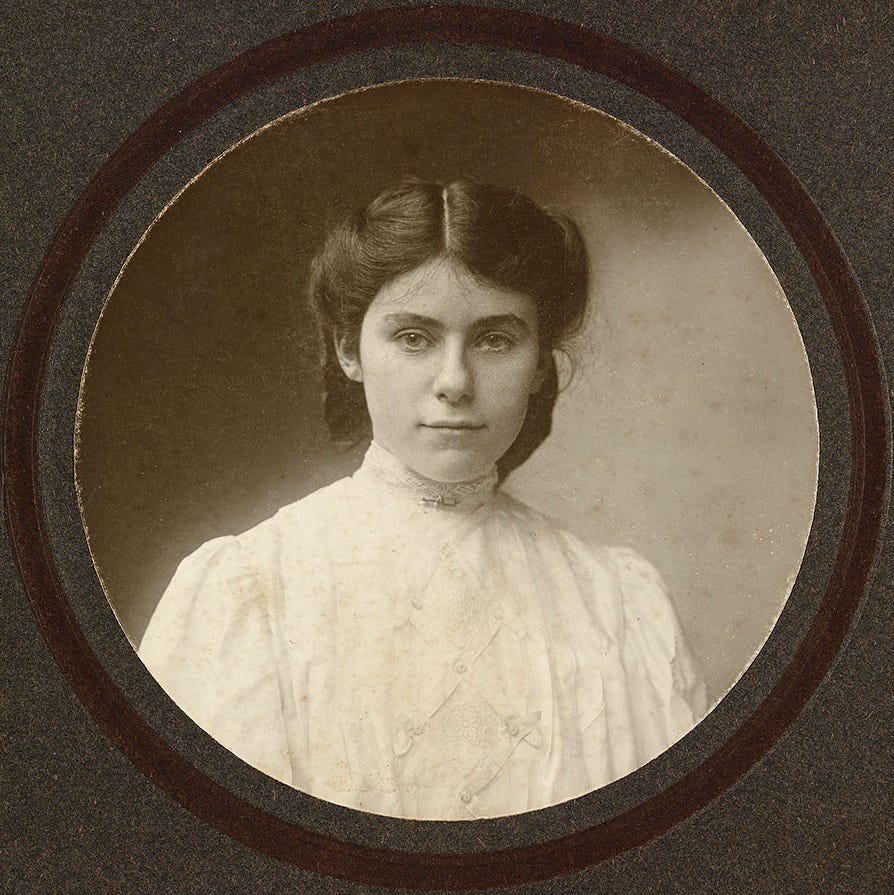Tolkien’s Secret to a Lasting Marriage
His advice on finding your "soul-mate"…
Men are not [monogamous]. No good pretending. Men just ain’t, not by their animal nature.
-J.R.R. Tolkien
Many readers will perhaps be surprised to learn that these words, written down by the beloved author of The Lord of the Rings, are indeed authentic. Penned between the 6th and 8th of March, 1941, they are found midway through a lengthy letter from J.R.R. Tolkien to his son Michael.
In the letter, Tolkien advises his second-eldest son on marriage and relations between the sexes. He offers advice on how to find a “soul-mate”, and explains why “nearly all marriages, even happy ones, are mistakes.”
On the surface, it seems completely hypocritical — heretical even — for a self-proclaimed Catholic author to write such words. But over the course of the letter, the real point Tolkien sets out to make slowly becomes clear, and the result is timeless advice for sustaining a happy and healthy relationship.
Tolkien clearly followed his own recommendations, as he and his wife Edith remained happily married for over 55 years. Today, we take an in-depth look at Tolkien’s letter, and discover the Oxford don’s secret to a loving, lifelong marriage…
The Problem
To see how Tolkien’s advice resonates today, it helps to first consider contemporary views on relationships. In fact, it was a viral post — “My wife thinks we’re soulmates. I think I settled” — that first sparked my recollection of Tolkien’s thoughts on the subject.
In that post, the author laments being married to his wife of six years, and considers leaving her to pursue true love elsewhere. Here is an excerpt:
It may or may not be surprising to you to know that most of the comments regarding this man were overwhelmingly supportive. The following piece of advice, for example, was “liked” over 137,000 times:
Whether or not the original post was real or written by AI is beside the point — in either case, the online masses overwhelmingly agreed that to leave his wife would be a just thing to do.
When I demurred on this point and suggested that he should instead adhere to his marriage vow “to be faithful to you in good times and in bad, in sickness and in health, to love you and to honor you all the days of my life”, I inevitably got pushback. The most common objection raised was the following:
This is what finally brings us to Tolkien — because in his mind, it is near impossible to not choose the wrong person. On this point, he specifically writes:
Nearly all marriages, even happy ones, are mistakes: in the sense that almost certainly (in a more perfect world, or even with a little more care in this very imperfect one) both partners might have found more suitable mates.
Admittedly, this is hard to dispute, and some might even use it as a pretext for ending their marriage. Yet Tolkien never intended it that way — in fact, his remedy for these mistakes is utterly at odds with the advice most people give today…
“A Nice Name for Self-Indulgence”
Let us now look at the first main section of Tolkien’s letter to Michael to better understand his thoughts on the institution of marriage — specifically, lifelong Christian marriage:
Men are not [monogamous]. No good pretending. Men just ain’t, not by their animal nature. Monogamy (although it has long been fundamental to our inherited ideas) is for us men a piece of ‘revealed ethic,’ according to faith and not the flesh. The essence of a fallen world is that the best cannot be attained by free enjoyment, or by what is called “self-realization” (usually a nice name for self-indulgence, wholly inimical to the realization of other selves); but by denial, by suffering. Faithfulness in Christian marriages entails that: great mortification.
For a Christian man there is no escape. Marriage may help to sanctify and direct to its proper object his sexual desires; its grace may help him in the struggle; but the struggle remains. It will not satisfy him—as hunger may be kept off by regular meals. It will offer as many difficulties to the purity proper to that state as it provides easements.
-Letter to Michael Tolkien, March 6-8, 1941. From The Letters of J.R.R. Tolkien, pp. 51-52
Before continuing: it’s important to note three main points:
1) Tolkien believes that “the essence of a fallen world” means that the best things in life “cannot be attained by free enjoyment…but by denial”
2) What is popularly referred to as “self-realization” is deemed by Tolkien to be “a nice name for self-indulgence”. Neither this nor “free enjoyment” allows you to attain the best, and is in fact “wholly inimical to the realization of other selves”.
3) Tolkien states that marriage, for as exalted as it is, is not the magic bullet to man’s woes:
Marriage may help…but the struggle remains.
It will offer as many difficulties…as it provides easements.
Put together, all of this offers seemingly little consolation. And what little it does offer appears to be decimated even further with the following lines:
When the glamour wears off, or merely works a bit thin, they think that they have made a mistake, and that the real soul-mate is still to find. The real soul-mate too often proves to be the next sexually attractive person that comes along. Someone whom they might indeed very profitably have married, if only—. Hence divorce, to provide the ‘if only’.
And of course they are as a rule quite right: they did make a mistake…
Yet it is precisely on this final line that all of Tolkien’s argument hinges. In the following paragraphs, he goes on to claim that “all marriages are mistakes” — but far from being a cause for despair, he instead presents this as a point of hope, the key foundation for building a successful marriage.
What he says next holds the key to understanding it all.
How to Find Your “Soul-mate”
In today’s world, more than ever before, you have a choice of who you marry — but with that choice comes massive responsibility.
What if you make a mistake? What if you marry the wrong person? Not to mention the underlying fear that, because the choice of who to marry is entirely yours, an unhappy marriage would be a curse of your own making.
For those struggling with these feelings of doubt — or regret — Tolkien’s advice offers a much needed perspective. He continues his letter with the following insight:
Keep reading with a 7-day free trial
Subscribe to INVICTUS to keep reading this post and get 7 days of free access to the full post archives.







